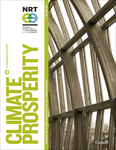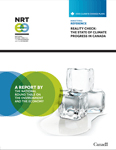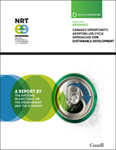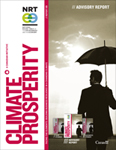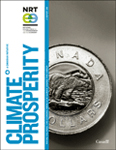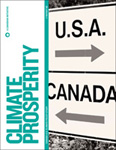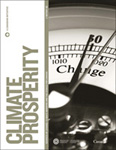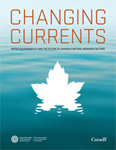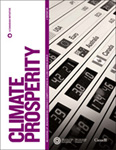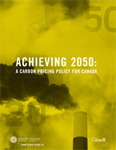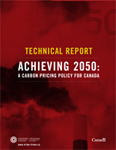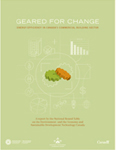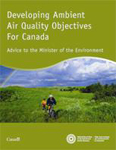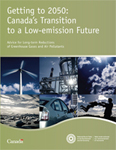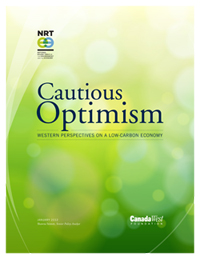Cautious Optimism: Western Perspectives on a Low-Carbon Economy
EXECUTIVE SUMMARY
Finding a way for Canada to thrive and prosper in a low-carbon future is arguably one of the most important public policy issues facing the country today. This is particularly the case for western Canada, which—with its diversity of energy systems and natural resource-based economy—is the epicenter of the challenges facing Canada when it comes to a low-carbon growth strategy.
In November 2011, nearly 50 western Canadians were brought together by the Canada West Foundation and the National Round Table on the Environment and the Economy (NRT) to talk about the risks to and opportunities for western Canada as the global economy becomes more carbon-constrained, and the key elements in and barriers to the development and implementation of a low-carbon growth strategy. Participants included experts from government, academia, non-governmental organizations, agriculture, manufacturing, transportation, energy and mining.
The information and insights from these meetings will feed into the NRT’s sixth report in its Climate Prosperity program, a multi-year policy initiative exploring how Canada can not only cope with climate change, but prosper through it. The focus of Climate Prosperity Report 6 is to articulate a feasible and coherent policy pathway for ensuring Canadian economic growth and competitiveness under future global carbon constraints – or, phrased differently, to develop a low-carbon growth plan for Canada.
The roundtables were held in Saskatoon, Vancouver, Calgary and Winnipeg. A number of key themes emerged regarding the primary challenges and opportunities facing the West:
- external factors, such as the impact of climate change and the political and economic actions of other countries, matter to the West;
- there is considerable room for improvement in western Canada’s performance around carbon emissions;
- western Canada has the potential and the ability to be a global supplier of energy solutions to the world;
- if western Canada is to position itself successfully for a low carbon transition, it needs to foster the commercialization of its energy innovations;
- the level of education and literacy around energy and environmental issues needs to be raised; and
- there is a need to change the language and scope of the low-carbon conversation.
While there was considerably more similarity than there were differences, provincial variation was evident. Most of the differences arose out of the unique political, economic and environmental realities facing each of the provinces. In Saskatchewan, for example, there was emphasis on maintaining the province’s recent economic growth, while in BC, the conversation focused on what kind of carbon constraint should be put in place and the importance of distributional effects. In Alberta, participants emphasized the need for a comprehensive policy framework that would enable certainty around technological investments whereas Manitoba participants struggled with how to apply efficiency programs in a province with an abundance of cheap power and a policy commitment to continued low power prices.
One of the clearest public policy recommendations to emerge from the roundtables is the need for a national vision that links together energy, environmental and economic issues. There was a strong sense that, while the vision needs to be national, it has to account for differences among provinces and between rural and urban populations. The strategy also needs to put a price on carbon and move the conversation beyond a fairly narrow focus on carbon emission reduction targets. Participants stressed that a successful strategy requires leadership and vision from Canada’s politicians and business leaders—something that is currently lacking in their opinion.
It was clear from the conversations that western Canada is in the unique position of having an incredible bounty of natural resources combined with the wealth, skilled labour and expertise to fully benefit from them. While there are definitely challenges ahead and policy levers that need to be pulled, there is no question that western Canada can prosper in a low-carbon future and participants were cautiously optimistic about western Canada’s ability to transition to a position of low-carbon strength.






